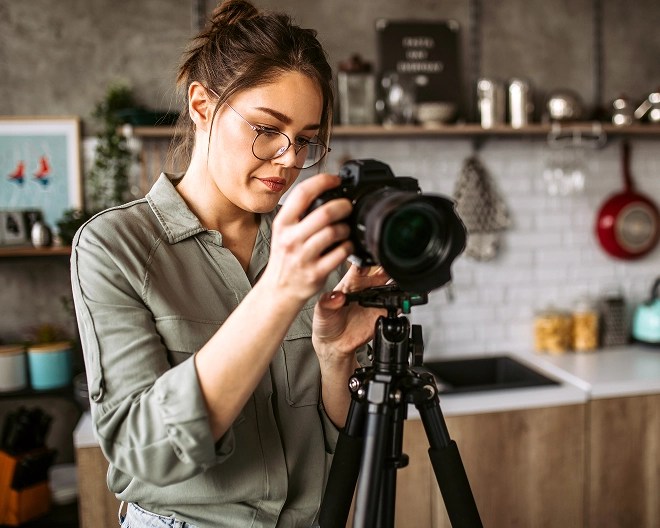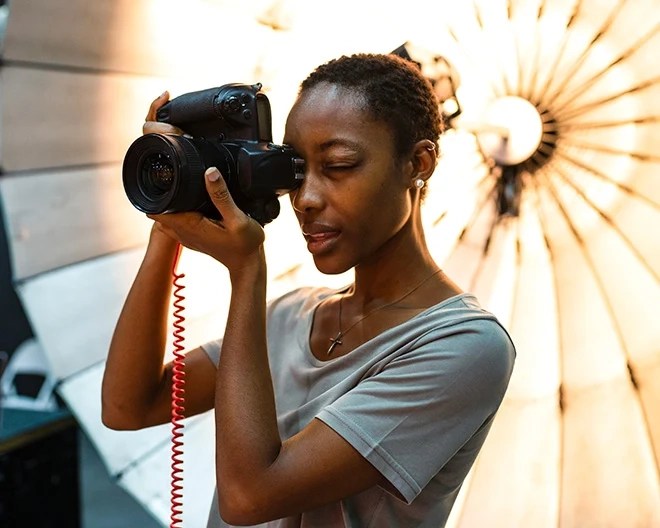Online Master’s in Photography
Advance your photography skills with flexible, online master’s degrees. Refine your techniques, explore creative concepts, and develop expertise to excel in the photography industry.
Refine your creative voice with an online master’s in photography
Photography is more than just capturing moments — it’s a powerful medium for storytelling, communication, and creative expression. An online master’s in photography helps you refine your technical skills, explore new creative directions, and develop a distinctive photographic voice — all while studying flexibly from anywhere in the world.
Why choose an online master’s in photography?
Study on your own schedule
Our fully online programmes offer the flexibility to study part-time or full-time from anywhere. Balance your creative development with work, commissions, or other personal commitments.
Develop a professional portfolio
Through guided practice, experimentation, and critical feedback, you’ll build a compelling portfolio that showcases your creative direction and technical mastery — ready for clients, galleries, or postgraduate opportunities.
Expand your career opportunities
Graduates pursue careers as freelance photographers, visual artists, educators, curators, or creative directors. Many also go on to exhibit work, publish photo books, or contribute to visual journalism and commercial campaigns.
What you’ll learn with an online master’s in photography
Deepen your conceptual thinking and creative practice while mastering technical and industry-relevant skills:
Advanced photographic techniques
Experiment with lighting, composition, post-production, and different formats — from digital to analogue — to elevate your craft.
Visual storytelling and narrative
Explore how to create compelling photo essays, series, and conceptual work that communicates with impact and clarity.
Professional practice and industry insight
Gain the business skills needed to succeed as a creative professional — including pricing, client relations, licensing, and promotion.
Critical theory and context
Engage with the history and theory of photography, and position your work within wider cultural, artistic, and political conversations.
Research-led creative development
Undertake self-directed research and practice-based projects that push your creative boundaries and strengthen your academic foundation.
FAQs
Explore related subject areas
Browse similar fields of study that align with your interests. These related subjects can expand your options or complement your chosen degree path.
Want help choosing the right degree?
Complete this form and we’ll share guides, insights, and top courses to help make your degree journey that much clearer.



